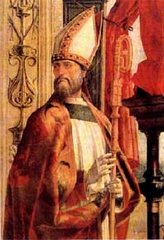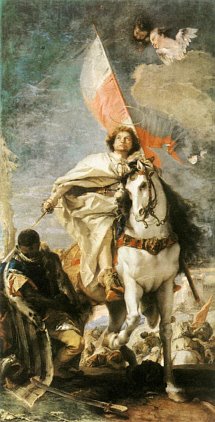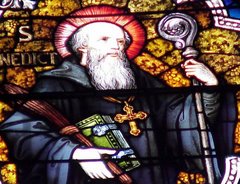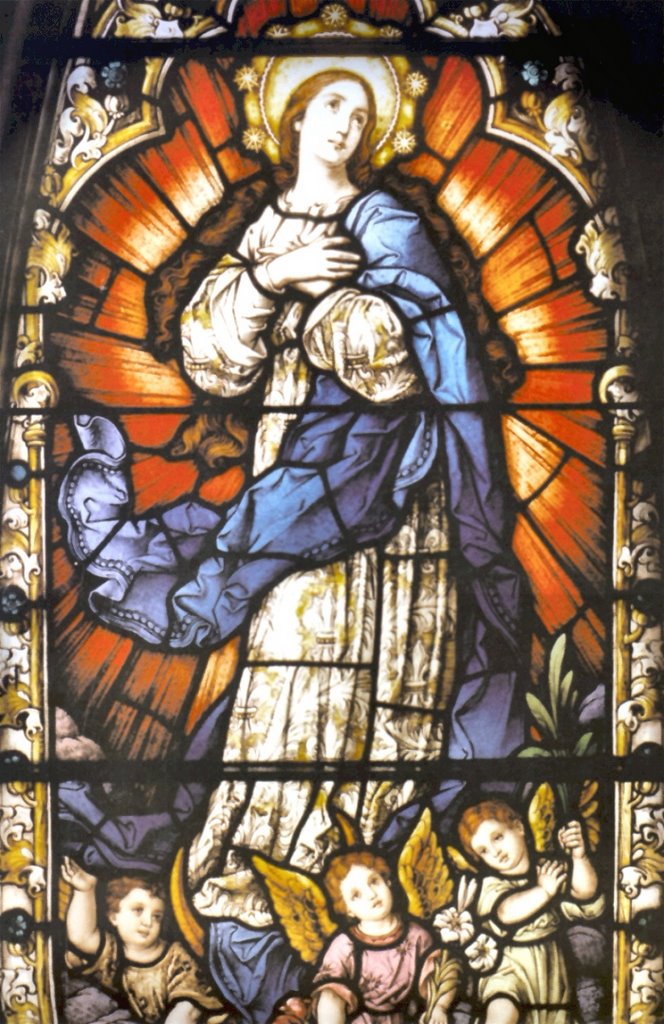"But in a village which was named Leprosum, when he [St. Martin D'Tours] too wished to overthrow a temple which had acquired great wealth through the superstitious ideas entertained of its sanctity, a multitude of the heathen resisted him to such a degree that he was driven back not without bodily injury. He, therefore, withdrew to a place in the vicinity, and there for three days, clothed in sackcloth and ashes fasting and praying the whole time, he besought the Lord, that, as he had not been able to overthrow that temple by human effort, Divine power might be exerted to destroy it. Then two angels, with spears and shields after the manner of heavenly warriors, suddenly presented themselves to him, saying that they were sent by the Lord to put to flight the rustic multitude, and to furnish protection to Martin, lest, while the temple was being destroyed, any one should offer resistance. They told him therefore to return, and complete the blessed work which he had begun. Accordingly Martin returned to the village; and while the crowds of heathen looked on in perfect quiet as he razed the pagan temple even to the foundations, he also reduced all the altars and images to dust. At this sight the rustics, when they perceived that they had been so astounded and terrified by an intervention of the Divine will, that they might not be found fighting against the bishop, almost all believed in the Lord Jesus. They then began to cry out openly and to confess that the God of Martin ought to be worshiped, and that the idols should be despised, which were not able to help them." [1]
"At that time... the most blessed Martin then began to preach in the Gauls, and he overcame the unbelief of the heathen, showing among the people by many miracles that Christ the Son of God was the true God. He destroyed heathen shrines, crushed heresy, built churches, and while he was glorious for many other miracles, he completed his title to fame by restoring three dead men to life."[2]
___________________
Endnotes:
[1] Suplicitus Severus, Life of St. Martin, Ch. XIV
[2] St. Gregory of Tours, History of the Franks, Ch. 39
Related:
"At that time... the most blessed Martin then began to preach in the Gauls, and he overcame the unbelief of the heathen, showing among the people by many miracles that Christ the Son of God was the true God. He destroyed heathen shrines, crushed heresy, built churches, and while he was glorious for many other miracles, he completed his title to fame by restoring three dead men to life."[2]
___________________
Endnotes:
[1] Suplicitus Severus, Life of St. Martin, Ch. XIV
[2] St. Gregory of Tours, History of the Franks, Ch. 39
Related:

















No comments:
Post a Comment